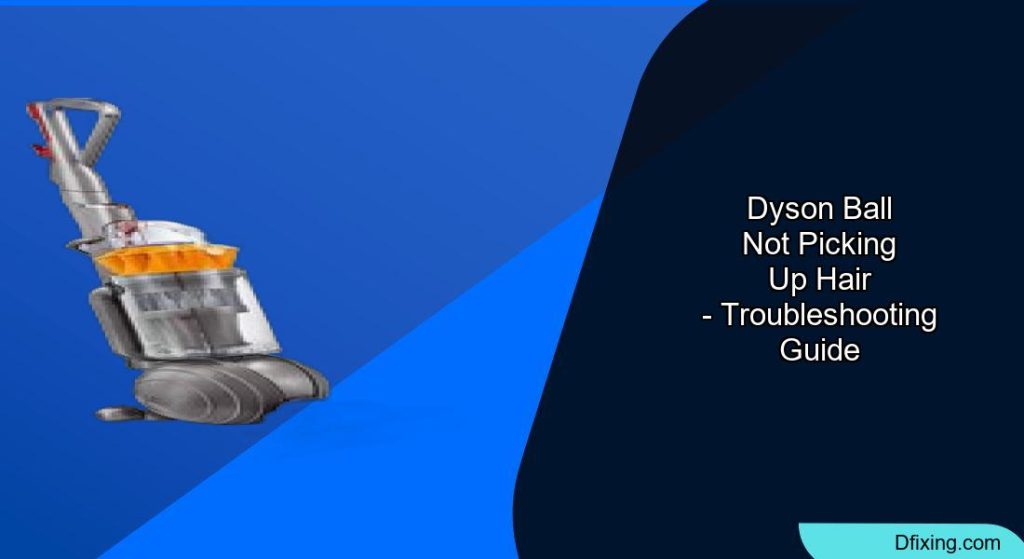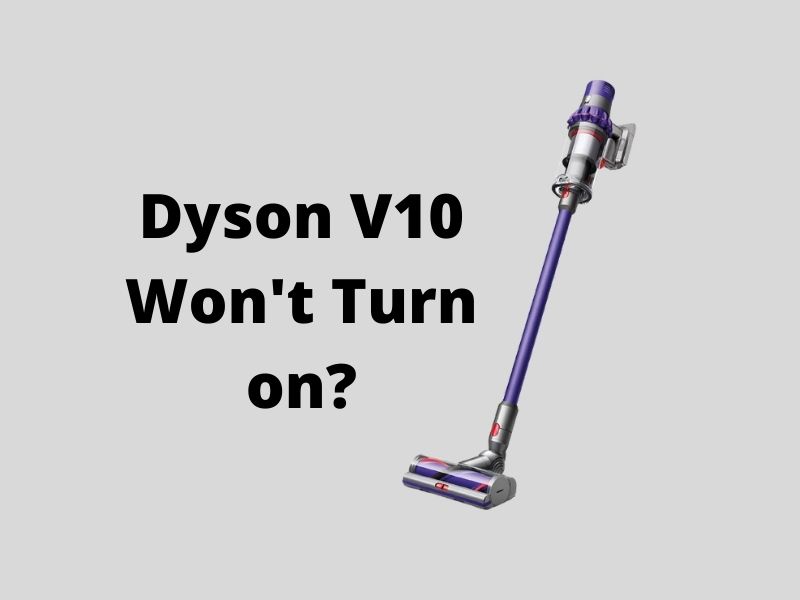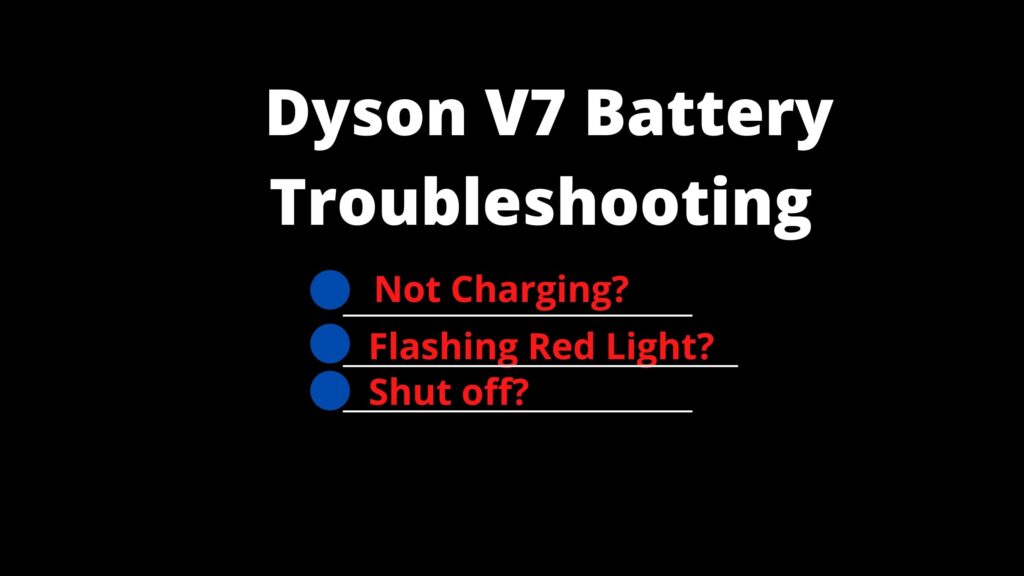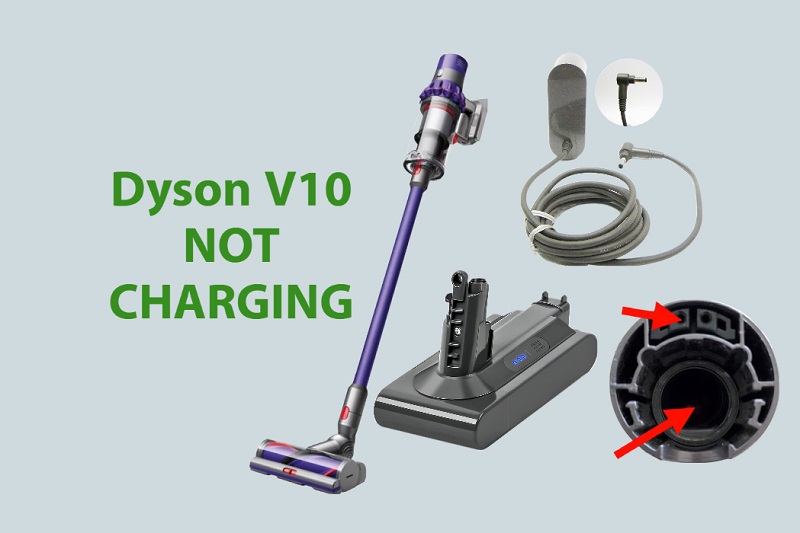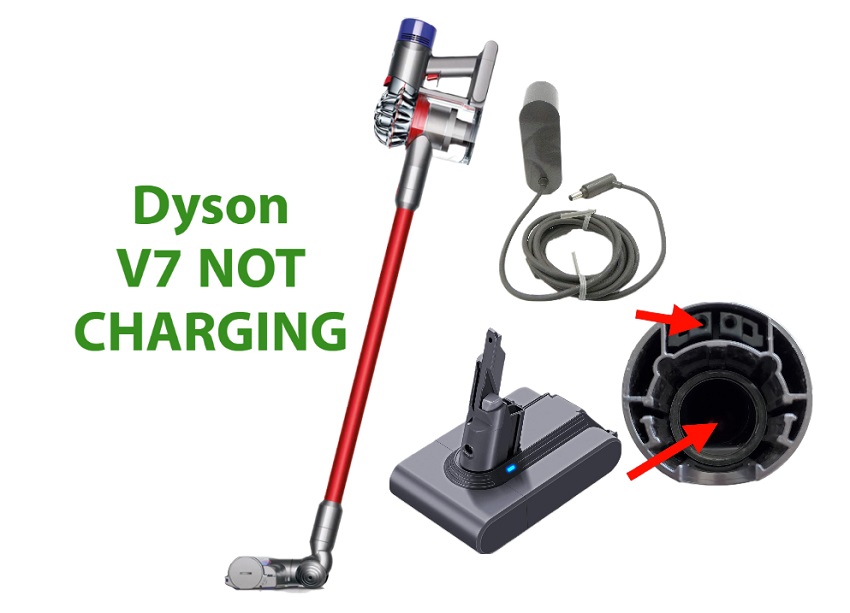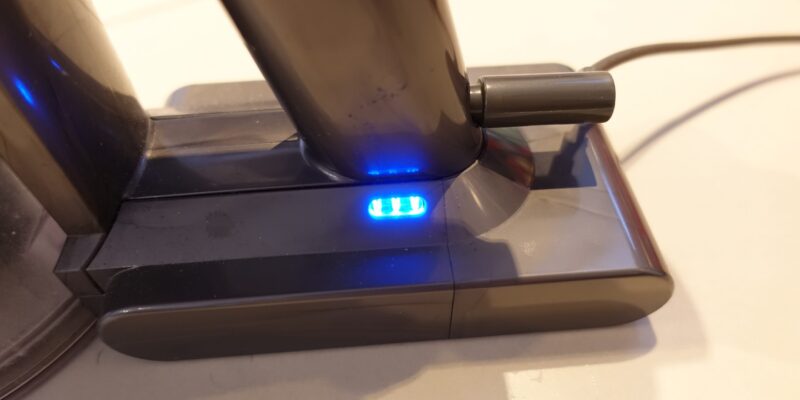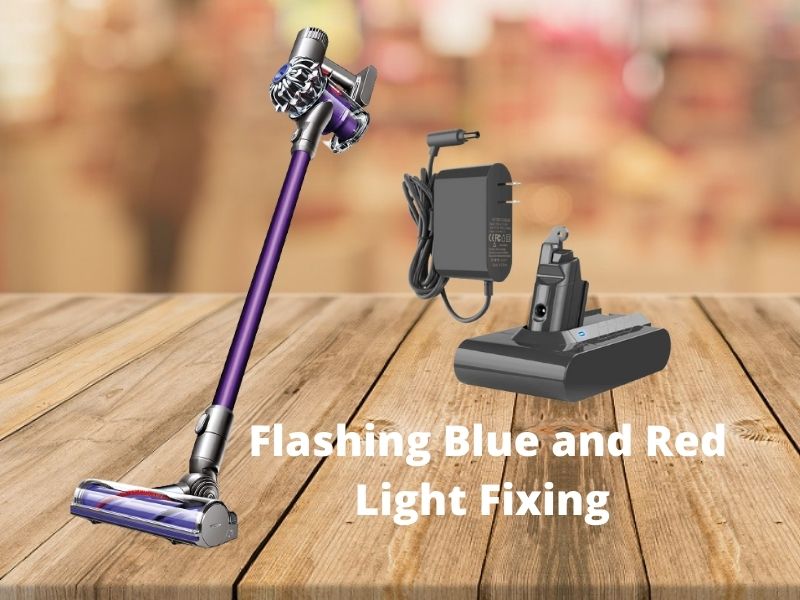When your Dyson Ball vacuum struggles to pick up hair, it can be frustrating, especially if you’ve invested in this premium cleaning tool specifically for its powerful suction capabilities. Whether you own a Multi floor Ball or Ball Animal model, hair pickup issues are common but typically solvable with the right approach. This comprehensive guide will help you diagnose and fix your Dyson’s hair pickup problems, restore its performance, and maintain it properly for years to come.
Affiliate disclosure: As an Amazon associate, We'll earn a commission for every successful order through our affiliate links in the article. However, you won’t be charged anything for this.
Many Dyson owners report their vacuums getting “stuck” to carpets, brush rolls stopping mid-clean, or suction only working through the hose instead of the floor head. These symptoms all point to common issues that you can often resolve without professional help. Let’s explore the causes and solutions to get your Dyson Ball vacuum working efficiently again.
Common Causes of Hair Pickup Failure in Dyson Ball Vacuums
Dyson Ball vacuums are engineering marvels, but they can experience performance issues for several reasons. Here are the most frequent culprits behind hair pickup problems:
Carpet Compatibility Issues
Dyson Ball vacuums lack carpet height adjustment features, which can cause problems on high-pile or plush carpets. The powerful suction can create a seal against dense carpet fibers, causing:
- The vacuum to feel “stuck” to the carpet
- Difficulty pushing the vacuum forward
- The brush roll stalling or stopping completely
How to check: Place your Dyson on its back and test if the brush roll spins freely when the vacuum is running. If it does, but stalls on your carpet, compatibility is likely the issue.
Blockages in Critical Pathways
The six-inch tube at the base head is a common location for blockages that can severely restrict airflow and reduce hair pickup efficiency.
Signs of blockage:
– Reduced or no suction at the floor head
– Normal suction through the hose when disconnected
– Unusual noises during operation
Valve Assembly Malfunctions
The valve assembly in the undercarriage plays a crucial role in directing suction. When it breaks or becomes stuck, suction may be diverted away from the floor head.
Symptoms include:
– Strong suction through the hose
– Little to no suction at the floor head
– The hose remaining suctioned even when the floor head is engaged
Brush Bar Issues
A clogged brush bar is one of the most common reasons for poor hair pickup:
- Hair, threads, and debris can wrap around the brush bar
- This restricts rotation and reduces cleaning effectiveness
- Over time, this can cause motor strain and overheating
Filter and Dust Bin Problems
Dirty filters and full dust bins are often overlooked causes of reduced suction:
- Clogged filters restrict airflow through the vacuum
- A full dust bin reduces the vacuum’s capacity to collect more debris
- Dust buildup on bin walls can interfere with the cyclonic action
Step-by-Step Troubleshooting Guide
Follow this systematic approach to diagnose and fix your Dyson Ball vacuum’s hair pickup problems:
Inspect and Clean the Brush Bar
- Unplug your vacuum for safety
- Lay the vacuum on its back
- Locate the brush bar access plate (usually secured with coins-slot screws)
- Turn the screws until they click and remove the plate
- Remove tangled hair and threads using scissors
- Extract any large objects manually
- Check if the brush roll spins freely
- Reattach the plate securely
Pro tip: For persistent tangles, remove the entire brush bar if your model allows it. Clean thoroughly before reinstalling.
Clear Blockages in the Tube System
- Disassemble the vacuum to access the six-inch tube at the base head
- Use a flat-head or Phillips-head screwdriver as needed
- Inspect the tube for hair, debris, or objects
- Check for a stuck valve and manually push it open if necessary
- Reassemble the vacuum after clearing blockages
Examine the Valve Assembly
- Locate the valve assembly in the undercarriage
- Check if it moves freely when you switch between floor and hose modes
- If stuck, gently manipulate it to restore proper movement
- If broken, note the part number for replacement
Clean or Replace Filters
- Locate both pre-motor and post-motor filters
- Remove them according to your model’s instructions
- Wash washable filters in warm water (no detergent)
- Allow filters to dry completely (at least 24 hours)
- Replace disposable filters if necessary
- Reinstall filters properly
Empty and Clean the Dust Bin
- Remove the dust bin from the vacuum
- Empty contents completely into a trash bag
- Clean interior walls with a damp cloth
- Check cyclone assembly for buildup
- Verify that the bin seals properly when reattached
Check for Hose and Airway Blockages
- Disconnect the hose from both ends
- Inspect visually for blockages
- Use a long, flexible object to gently clear obstructions
- Check for holes or damage in the hose
- Examine all airways and connection points
Advanced Troubleshooting for Specific Dyson Models
Dyson Animal Vacuum Change Valve Issues
The “change valve” mechanism controls suction direction between the wand and roller head. Problems here can cause major suction issues.
Diagnostic steps:
1. Remove the secondary filter housing on the left side
2. Inspect for debris accumulation
3. Check the hose connecting to the canister
4. Ensure the change valve moves freely when raising/lowering the vacuum arm
5. Manually extract visible debris from the valve area
Common culprits:
– Pet hair buildup in tight spaces
– Lodged objects like socks or fabric pieces
– Dust accumulation preventing proper valve movement
Dyson Ball Multi-Floor Clog Removal
For Multi-Floor and older models like the DC25, follow these steps:
- Locate the gold prongs connecting the internal hose
- Disengage using the red clip by sliding it off
- Release the locking hook and pull the hose straight out
- Clean the hose interior using gloves and 91% isopropyl alcohol
- Flip tabs on the vacuum’s lower section to expose the brush area
- Remove hair and debris buildup along edges
- Reassemble securely, ensuring all clips and connections are fastened
Dyson D50 Suction Restoration
If your D50 produces suction only through the hose but not the floor attachment:
- Detach the dust catcher for routine maintenance
- Remove the rear hose via the plastic clip
- Unscrew the rollerball to inspect internal suction areas
- Check the internal filter for clogs (especially pet hair)
- Inspect the junction where pipes connect for loose rubber seals
- Repair any loose seals with appropriate adhesive
- Clean the internal filter thoroughly before reassembly
Dyson DC65 Blockage Clearance
For the DC65 model, target these specific areas:
- Canister access: Empty before reaching the max fill line and check beneath for blockages
- Hose and tube access: Use the sight window on the canister’s top to access the tube
- Back-of-ball access: Remove the set screw with a Phillips screwdriver to open the panel
- Brush bar maintenance: Remove retaining clips and turn screws until they click to access
Preventative Maintenance Tips
Implement these practices to prevent future hair pickup issues:
Weekly Maintenance
- Empty the dust bin after each use
- Check the brush bar for hair and thread buildup
- Wipe down the exterior and wheels
Monthly Maintenance
- Inspect the hose for blockages
- Check all connection points for debris
- Clean the cyclone assembly with a dry cloth
- Verify that the valve assembly moves freely
Quarterly Maintenance
- Wash or replace filters according to manufacturer guidelines
- Deep clean the brush bar and roller
- Check all seals for wear or damage
- Inspect the electrical cord for damage
Annual Maintenance
- Disassemble and clean the main pathways thoroughly
- Check and clean the change valve mechanism
- Inspect the motor housing vents for dust buildup
- Consider professional servicing for persistent issues
Frequently Asked Questions (FAQ)
Why does my Dyson Ball vacuum get stuck on carpet?
The powerful suction of Dyson vacuums can create a seal on high-pile or plush carpets. Without height adjustment capabilities, the vacuum can feel stuck. Try using a lighter touch when vacuuming dense carpets or consider using the hard floor setting if available on your model.
How often should I clean my Dyson Ball vacuum filters?
Dyson recommends washing the filters every three months under normal use conditions. However, if you have pets or vacuum frequently, monthly cleaning may be necessary. Always allow filters to dry completely (at least 24 hours) before reinstalling.
Why does my Dyson Ball vacuum have strong suction through the hose but not the floor head?
This typically indicates a blockage in the pathway between the floor head and the main vacuum body, or a problem with the valve assembly that directs suction. Check for blockages in the six-inch tube at the base and ensure the valve assembly is functioning properly.
Can I use water to clean inside my Dyson Ball vacuum?
Only use water on parts specifically designated as washable, such as certain filters and the dust bin. For other components, use a dry cloth or slightly damp cloth. Never submerge electrical components or allow water to enter the motor housing.
Is my carpet type compatible with a Dyson Ball vacuum?
Dyson Ball vacuums work best on low to medium-pile carpets. Very high-pile, plush, or rubber-backed carpets can cause issues with the brush roll and suction. If you primarily have ultra-plush carpeting, you might consider a different vacuum model with height adjustment capabilities.
Conclusion
Hair pickup issues with your Dyson Ball vacuum are typically solvable with proper troubleshooting and maintenance. By understanding the common causes—from brush bar tangles to blockages and filter issues—you can usually restore your vacuum’s performance without professional help.
Regular maintenance is key to preventing future problems. Establish a cleaning routine that includes emptying the dust bin, checking for blockages, and cleaning filters according to the recommended schedule. With proper care, your Dyson Ball vacuum should provide years of effective hair pickup and overall cleaning performance.
If problems persist after trying these solutions, contact Dyson customer service or consult with a vacuum repair specialist. Sometimes, component replacement or professional servicing may be necessary, especially for older models or those with extensive use.

